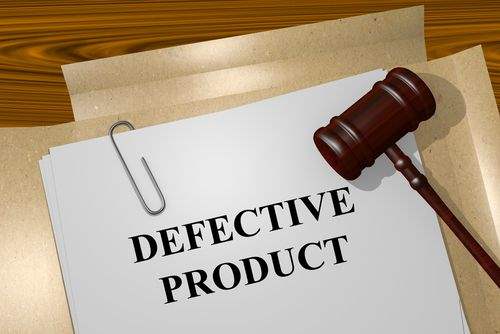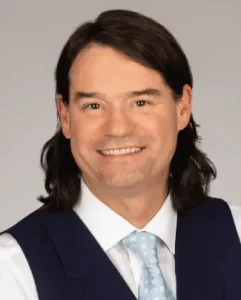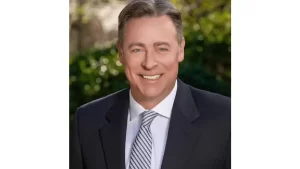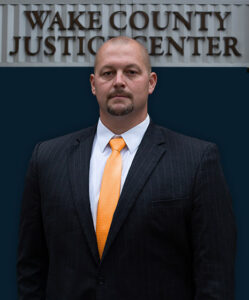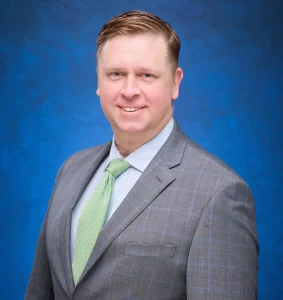Janet Ward Black
Defective Drug Recalls Lawyer
Attorney Janet Ward Black is the principal owner of Ward Black Law located in Greensboro. It is one of the largest woman-owned law firms in our state. The firm’s clients have received settlements of more than $100 million over the last 10 years. The firm represents people injured at work, in accidents, and by dangerous products and environmental hazards across North Carolina.
A graduate of Davidson College cum laude in economics and Duke Law School, Black served as the third woman president of the North Carolina Association of Trial Lawyers and the fourth woman president of the North Carolina Bar Association. She was the second lawyer in history to serve as president of both organizations.
The program she created while president of the 16,000 member Bar Association, “4 ALL,” has been used as a model in the United States and Canada for providing free legal services to the poor. The 4ALL program included a telephone call-in day during which more than a thousand NC lawyers provided free legal advice to any person who called a central toll-free number. More than 7000 people consulted with a lawyer that day. Over 100,000 North Carolinians have been assisted by a North Carolina lawyer at no charge since “4 ALL” began.
Benjamin Cochran
Defective Drug Recalls Lawyer
Managing partner Benjamin T. Cochran oversees the operation of Hardison & Cochran Attorneys at Law in addition to representing individual clients in cases involving workers’ compensation and personal injury law.
A lifelong North Carolinian, Cochran knew from his high-school days in High Point that he wanted to be an attorney. He received a B.A. degree in economics and African-American studies from the University of North Carolina in 1999 and then enrolled at the Norman Adrian Wiggins School of Law at Campbell University.
As a second-year law student, Cochran started working part-time in the law firm he now manages. During his third year in law school, he was actively handling some aspects of trial work for the firm and then joined as a licensed attorney after getting his J.D. and passing the bar in 2002.
For the first eight years, Cochran concentrated his work exclusively on workers’ compensation issues. He obtained additional training in workers’ compensation law and received designation as a Board Certified Specialist in Workers’ Compensation by the North Carolina State Bar. In recent years, Cochran has expanded his practice to include personal injury cases, but workers’ compensation remains his primary focus.
Jon R. Moore
Defective Drug Recalls Lawyer
Jon Moore grew up in the Kansas City, Missouri area where he earned his Eagle Scout badge and graduated as valedictorian of his high school class of 600. He attended college at Northwestern University, outside of Chicago. Following college, Jon got accepted to Georgetown University Law School but elected to defer his acceptance for a year. During that year, Jon returned to his hometown and taught English and Debate at a local high school. Jon continued to pursue his interest in teaching while at law school, by teaching a practical law class to students at a high school in Washington, DC.
Jon and Laura moved to Charlotte in 2002 when Laura accepted a position as a reporter at a Charlotte TV station. It was at that time that Jon began his legal career in North Carolina. Jon has been recognized by North Carolina Super Lawyers® magazine every year from 2012 through 2024. He currently serves in the capacity of PAC Chair for the North Carolina Advocates for Justice, and has previously served as Vice President of Legislative Affairs for the North Carolina Advocates for Justice, Vice-President of Legal Affairs, Chair of the Auto Torts and Premises Liability section, and Chair of the Products Liability section.
Jamie Teague
Defective Drug Recalls Lawyer
Associate Attorney Jamie Teague is an integral part of the Powers Law Firm PA, bringing a wealth of knowledge and a compassionate approach to criminal defense, particularly in cases involving domestic violence and their interplay with family-related legal matters.
Her legal help and guidance are particularly crucial in cases where family law matters intersect with criminal allegations, such as domestic violence charges and DVPO – Domestic Violence Protective Orders (50B Orders in NC).
Jamie understands the profound impact criminal domestic violence allegations can have on family law outcomes and can bridge the gap between civil family law proceedings and the criminal justice sphere.
David A. Coolidge
Defective Drug Recalls Lawyer
When you are charged with a North Carolina felony or misdemeanor, the most important decision you will make is hiring a criminal defense attorney.You need to work with a criminal defense lawyer who is experienced, skilled and passionate about seeking justice for his clients. You need a lawyer who will also pay close attention to your concerns, answer your calls and keep you updated about your case.You need a lawyer exactly like David Coolidge, the founder of The Coolidge Law Firm.
David is committed to looking into all legal options. He is a tough negotiator who seeks fair and reasonable plea agreements if they will serve his client’s best interests. If an adequate plea cannot be attained, he’s ready to put his trial skills to work in the courtroom. His goal in every case is to protect his client’s rights and to secure the best possible outcome.In addition to representing clients, David is an active member of several of the state’s legal organizations, including the N.C. Bar Association, Wake County Bar Association, N.C. Advocates for Justice and Wake County Academy of Criminal Trial Lawyers. He also regularly volunteers with The Healing Place and Durham Rescue Mission.
Jeremy Cotten
Defective Drug Recalls Lawyer
Mr. Jeremy Cotten is a native of Fuquay-Varina in Wake County, North Carolina and currently resides in Raleigh.
He attended high school in Wake County where he was drafted in the 2nd Round (58th overall pick) of the 1998 Major League Baseball Draft and signed a professional contract with the Pittsburgh Pirates. He played for five seasons in the Pirates organization as third and first baseman. He was a Baseball America Top Prospect in 1998. He then returned to North Carolina to obtain his BA in Trust and Investment Management at Campbell University.
He then worked in the banking and wealth management industry for three years while earning numerous designations including the CERTIFIED FINANCIAL PLANNER designation, series 7 and 66 licenses, and numerous insurance designations.
Mr. Cotten then returned to Campbell University’s School of Law where he completed the advocacy track and earned his Law License in 2012. He then went out on his own to establish Cotten Law Firm offices in both Fuquay-Varina and Raleigh and has been serving the needs of his clients in central North Carolina counties ever since.
Seth A. Blum
Defective Drug Recalls Lawyer
Seth is a founding partner of Kurtz & Blum, focusing on criminal defense, including serious felonies, DMV matters, and pre-charge representation. With decades of trial experience, he is licensed in both North Carolina State and Federal Courts. Seth is known for his sharp litigation skills, strategic thinking, and unwavering commitment to defending the rights of the accused.
Since establishing the firm in 1998, Seth has remained dedicated to ensuring every client receives a strong and fair defense. Over the years, he has represented individuals in complex criminal cases, ranging from high-profile felonies to appellate matters.
He has trained numerous attorneys in trial advocacy, regularly teaching advanced litigation techniques. As an Adjunct Professor of Trial Advocacy at the University of North Carolina School of Law, he continues to shape the next generation of defense lawyers.
Christopher Bagley
Defective Drug Recalls Lawyer
Chris Bagley joined the firm in 2025 as a Consumer Protection attorney at Maginnis Howard Raleigh.
After graduating with an undergraduate degree in Economics and a Master of Journalism, Chris spent twelve years in business journalism and public relations and two years as a legal affairs reporter in the Research Triangle. In 2016, he graduated from the University of North Carolina School of Law.
At UNC Law, Chris was an editor and executive board member of the North Carolina Journal of International Law, receiving the Seymour Wurfel Award for outstanding contributions. He was also a Holderness Moot Court client counseling team member and judges’ chair for the J. Braxton Craven moot court competition.
Chris is a member of the North Carolina State Bar and is admitted to practice in the U.S. District Courts for the Middle and Eastern Districts of North Carolina and the U.S. Court of Appeals for the Fourth Circuit. He serves on the board of the North Carolina Lawyer Chapter of the American Constitution Society. He is involved with several legal organizations, including the Public Justice Foundation and the National Association of Consumer Advocates.
In Chris’s free time, he enjoys long-distance road cycling, cooking, learning foreign languages, and playing chess.
Who is in charge of drug recalls?
Drug recalls are a vital mechanism to protect public health, ensuring that medicines found to be defective, contaminated, or potentially harmful are swiftly removed from the market. The process is complex and involves a coordinated effort among regulatory authorities, pharmaceutical manufacturers, and healthcare institutions. Understanding who is in charge of drug recalls, and how the process unfolds, is essential for healthcare professionals, patients, and anyone interested in medication safety.
The Role of Regulatory Authorities
United States: The Food and Drug Administration (FDA)
In the United States, the Food and Drug Administration (FDA) is the primary agency responsible for overseeing drug recalls. The FDA’s authority stems from the Federal Food, Drug, and Cosmetic Act, which empowers the agency to regulate the safety, efficacy, and quality of drugs.
Most drug recalls in the U.S. are initiated voluntarily by pharmaceutical companies, but the FDA plays a critical oversight role. If a company does not act promptly or adequately, the FDA can request, and in rare cases mandate, a recall. The agency’s responsibilities include:
Assessing the Risk: When a defect or safety issue is reported, the FDA evaluates the risk to public health and classifies the recall as Class I (most serious), Class II, or Class III (least serious).
Monitoring the Recall: The FDA reviews the manufacturer’s recall strategy, monitors its execution, and ensures that the affected products are effectively removed from the market.
Public Notification: For serious recalls, the FDA issues press releases and updates its website to inform the public and healthcare professionals.
Evaluating Effectiveness: The agency assesses whether the recall has been successful and may require additional actions if necessary.
India: The Central Drugs Standard Control Organisation (CDSCO)
In India, the Central Drugs Standard Control Organisation (CDSCO), under the Ministry of Health and Family Welfare, is the national regulatory authority responsible for drug safety. The CDSCO, along with State Licensing Authorities (SLAs), oversees the recall process. Their responsibilities include:
Issuing Recall Orders: The CDSCO can issue recall orders for drugs that pose a risk to public health, either on its own or in coordination with state authorities.
Coordinating Communication: The agency ensures rapid communication between manufacturers, distributors, and state authorities.
Monitoring Compliance: The CDSCO monitors the recall process and ensures that the product is removed from the market and that corrective actions are taken.
Europe and Other Regions
In Europe, the European Medicines Agency (EMA) and national regulatory agencies such as the UK’s Medicines and Healthcare products Regulatory Agency (MHRA) play similar roles. They assess safety concerns, coordinate recalls across member states, and ensure public notification.
The Manufacturer’s Role: Initiation and Execution
While regulatory agencies oversee and enforce recalls, the actual process is typically initiated and executed by the manufacturer or marketing authorization holder. Their responsibilities are extensive and include:
Detecting Issues: Manufacturers are required to have robust quality assurance systems to detect defects, contamination, or adverse events.
Initiating Recalls: Upon discovering a problem, the manufacturer must promptly notify the regulatory authority and initiate a recall if necessary.
Developing a Recall Strategy: The company must develop a detailed recall plan, including identifying affected batches, notifying distributors and customers, and arranging for the return or destruction of the product.
Communication: Manufacturers are responsible for communicating recall information to all parts of the supply chain, including wholesalers, pharmacies, hospitals, and sometimes directly to patients.
Corrective Actions: Beyond the recall, manufacturers must investigate the root cause of the issue and implement corrective measures to prevent recurrence.
Healthcare Institutions: Internal Management
Within healthcare settings, such as hospitals and pharmacies, the responsibility for managing drug recalls falls to pharmacy departments and medication safety officers. Their duties include:
Receiving Recall Notices: Pharmacies are often the first point of contact for recall notifications from manufacturers, distributors, or regulatory authorities.
Identifying and Isolating Products: Staff must quickly identify and remove affected products from inventory to prevent further use.
Coordinating with Clinical Staff: Effective recall management requires communication with nursing, medical, and administrative staff to ensure that recalled drugs are not administered to patients.
Documentation and Reporting: Healthcare institutions must document all actions taken in response to a recall and report their compliance to regulatory authorities if required.
The Recall Process: Step-by-Step
Detection: A problem is identified through adverse event reports, quality testing, or regulatory inspection.
Notification: The manufacturer notifies the regulatory authority and initiates a recall.
Classification: The regulatory authority assesses the risk and classifies the recall.
Communication: Information is disseminated to distributors, healthcare providers, and the public.
Product Removal: Affected products are removed from the supply chain and returned or destroyed.
Effectiveness Checks: The regulatory authority evaluates whether the recall has been successful.
Corrective Action: The manufacturer investigates the cause and implements preventive measures.
Collaboration and Challenges
Drug recalls require close collaboration among all stakeholders. Challenges include ensuring rapid communication, tracking products through complex supply chains, and reaching all affected parties, especially in global markets. Technology, such as electronic health records and supply chain management systems, is increasingly used to support effective recall management.
Conclusion
In summary, the responsibility for drug recalls is shared among regulatory authorities, manufacturers, and healthcare institutions. Agencies like the FDA, CDSCO, EMA, and MHRA provide oversight and enforcement, while manufacturers initiate and execute recalls. Healthcare providers ensure that recalled products are removed from use and that patients are protected. This collaborative approach is essential to maintaining the safety and integrity of the drug supply, ultimately safeguarding public health.

